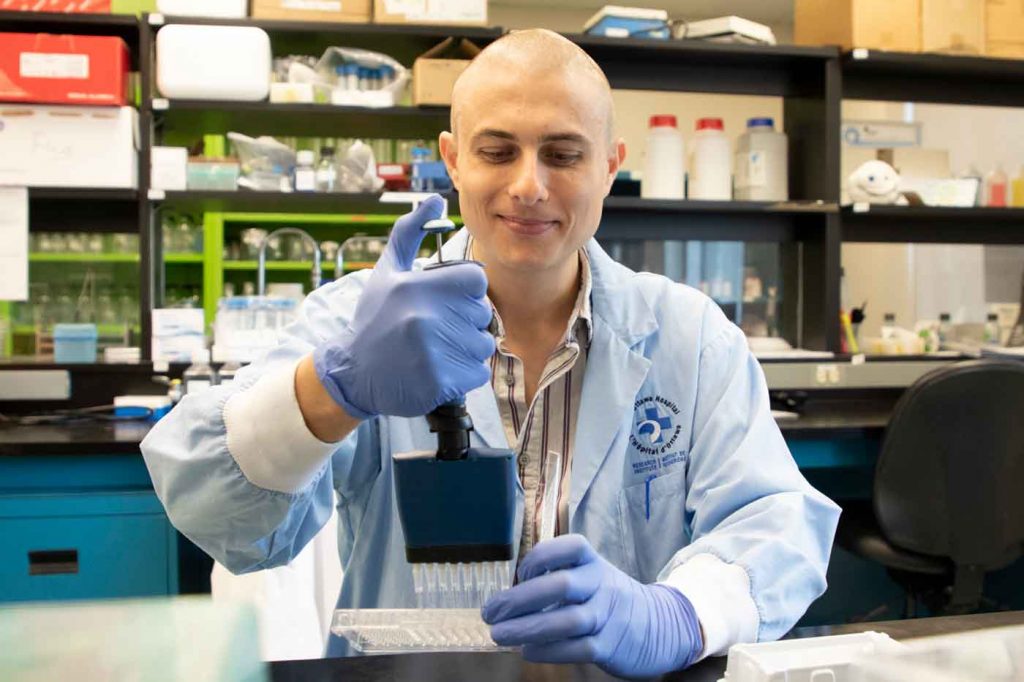Although the connection between the immune system and cancer has been recognized for over a century, understanding how the immune system works against cancer has been the biggest challenge for scientists like Dr. Michele Ardolino.
Initially, efforts were made to stimulate the immune system to make it attack the cancer. But the game changer was the discovery that there are key molecules, called immune checkpoints, on cancer cells that suppress the immune cells and prevent them from attacking the cancer. There are many types of immune cells. T-cells have been recognized as key immune cells and the ones that immunotherapy drugs have been designed to target.

“What we didn’t know before is that some of these receptors are present in other immune cells,” said Dr. Michele Ardolino, scientist at The Ottawa Hospital and assistant professor at the University of Ottawa. “What we discovered is that these receptors are present on another type of immune cell called natural killer cells.”
He said that even though most of the immunotherapy drugs target the T-cells to make them work better, not all cancer tumours are responsive to T-cells.
“But,” said Dr. Ardolino, “These tumours might be very effectively killed by natural killer cells. So, if we know what kind of tumour the patient has, we can design therapies to elicit the most effective immune response. Which in some cases could be a T-cell response and in other cases could be a natural killer response.”
“We now have a better idea of how the immune system suppresses cancer. This means that we can now target the mechanism that suppresses the immune system in a more specific way.”
“This is cool for a number of reasons,” said Dr. Ardolino. “We now have a better idea of how the immune system suppresses cancer. This means that we can now target the mechanism that suppresses the immune system in a more specific way. And we can elicit a stronger natural killer cell response against cancer.”
It is becoming widely recognized that not only is cancer unique to each patient, but the immune system is also unique to each person. Researchers and clinicians are realizing the importance of tailoring the immunotherapy not only to each person’s cancer but to their own unique immune system. It is a complex problem to give a drug that would have maximum therapeutic effect with the least side effects, to be as targeted as possible.
Dr. Ardolino recently published a breakthrough discovery that has potential to make immunotherapy treatments to work for more people, and more types of cancers.
In October 2018, immunologists James Allison and Tasuku Honjo were awarded the Nobel Prize in Medicine for their discoveries of immune checkpoint inhibitors, considered a landmark in the fight against cancer.
The Ottawa Hospital is a leading academic health, research, and learning hospital proudly affiliated with the University of Ottawa.




